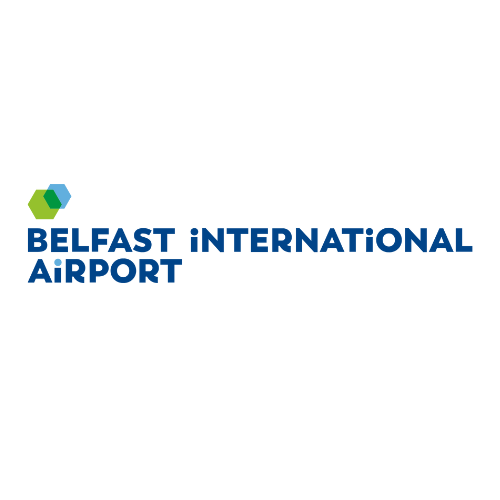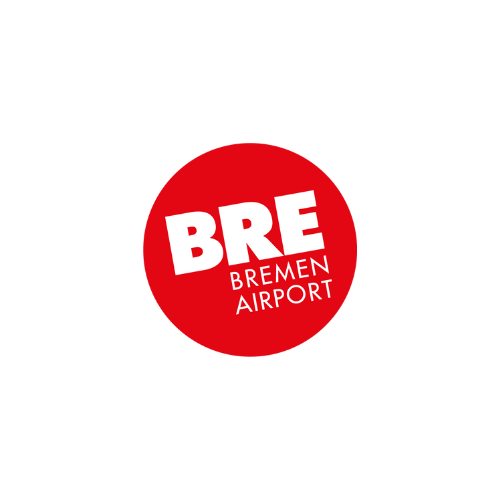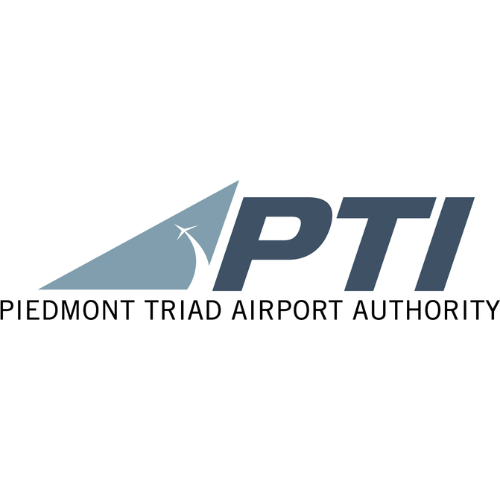Imagine setting off on a road trip with no map, no destination, and no way to track your progress. Sure, you’re moving, but are you getting anywhere worthwhile?
That’s the reality for 47% of businesses today. Despite actively running digital marketing campaigns, nearly half still have no formal strategy. They’re posting, advertising and emailing but without clear goals, alignment to business objectives, or a framework to measure what’s working.
The result? Wasted budget, missed opportunities, and marketing that feels more like guesswork than growth.
For airports, this is a critical pitfall to avoid. Passengers engage across multiple devices and channels, from booking parking online to scrolling TikTok in the departure lounge. That’s why airports need a clear, strategic plan. Not just for visibility, but to spark engagement, nurture customers, drive conversions, and deliver measurable results at every stage of the passenger lifecycle.
Why digital marketing matters more than ever
In 2025, digital marketing is no longer just a growth driver, it’s a non-negotiable for airports looking to stay competitive and relevant in a crowded industry. Customers are digital-first, and this isn’t likely to change. Globally, 80% now begin their research and booking online, and this is particularly evident among younger demographics, with 86% of Millennials and 83% of Gen Z preferring online booking. It’s also worth noting that the average customer interacts with a brand across at least six digital touchpoints before making a purchase decision
More importantly, passengers expect seamless, personalised experiences across their entire journey, from booking parking and lounge access to receiving real-time flight updates and in-terminal offers. A strong digital marketing strategy, powered by customer data, analytics and AI technology, is the key to meeting these expectations, turning one-time visitors into loyal brand advocates.
For airports, the stakes are even higher. With non-aeronautical revenue now accounting for up to 80% of total profits, maximising digital marketing performance is essential to driving revenue beyond the runway.
In short: a strong digital strategy isn’t just about visibility. It’s about building meaningful, data-driven engagement that grows loyalty and drives measurable results across your airport ecosystem.
Putting the customer at the heart of digital marketing
It’s no coincidence that the world’s leading digital brands (think Amazon, Netflix, and Spotify) are relentless in their focus on customer-centricity. These companies don’t just push any old message out; they build meaningful connections by listening, learning, and adapting to what their customers want.
Take Spotify’s ‘2024 Wrapped’ campaign as a standout example. What started as a simple end-of-year summary has evolved into a viral social phenomenon, driving record-breaking engagement. Why? Because it’s personalised, interactive, and puts the user’s experience front and centre.
This kind of dynamic, customer-first approach is what keeps audiences engaged and loyal. In a fast-moving digital landscape, success hinges on understanding your audience deeply and using what you know about them to deliver value at every touchpoint.
For airports, the takeaway is clear: placing the passenger at the heart of your digital strategy not only boosts engagement but ensures every campaign is laser-focused on meeting their evolving needs and expectations.
Turning data into action: Why airport marketing analytics are your superpower
To build a marketing strategy that truly delivers, you need more than gut instinct and creativity—you need hard data. Analytics turn digital noise into actionable intelligence, helping airports understand passengers on a deeper level: who they are, what they value, and how they behave.
With the right analytics framework in place, you can:
- Sharpen customer understanding: Dive into behavioural patterns, preferences, and booking habits to segment audiences more precisely and deliver hyper-relevant offers.
- Optimise performance in real time: Monitor campaign KPIs across channels to quickly pivot strategies, enhance ROI, and avoid wasted marketing spend.
- Predict and personalise at scale: AI-driven tools bring a predictive edge, forecasting demand, identifying upsell opportunities, and enabling proactive campaigns that anticipate needs before passengers even voice them.
The payoff? More seamless customer journeys, stronger engagement, and higher conversion rates.
But before diving deep into KPIs, map your passenger lifecycle and clarify your goals. What action do you want each customer to take next? When data is tied to clear business outcomes, it becomes actionable. Without that clarity, even the best metrics fall flat.
Ask the hard questions
Once your strategy is in place, challenge it:
- What’s the real benefit of each metric?
- Why does it matter to your airport’s bottom line?
This mindset keeps your airport marketing sharp and future-focused, ensuring everything from UX to loyalty campaigns remains relevant, customer-centric and revenue-driven.
Introducing RACE
Digital marketing doesn’t have to be overwhelming. Frameworks like Dr. Dave Chaffey’s ‘RACE’ model provides a simple, scalable blueprint, breaking digital strategy into four key stages: Reach, Act, Convert, Engage.
At Rezcomm, we’ve taken this proven framework and enhanced it for the airport sector. Our version adds a crucial fifth step: Plan—recognising that strategy and alignment are the backbone of successful marketing.
Here’s how it works:
Plan
This stage is all about setting clear objectives, aligning teams, and defining KPIs that matter. For airports, this means mapping the passenger lifecycle: from the moment they start researching travel to their return journey and identifying where digital can drive maximum impact. It’s also about ensuring your data strategy is rock-solid, enabling you to track, analyse, and optimise every touchpoint.
Takeaway: Strong planning transforms digital marketing from reactive to proactive, ensuring every campaign ties back to revenue goals.
Reach
In this phase, it’s all about visibility. Your goal is to connect with potential passengers where they’re already spending time, whether that’s through search engines, social media, display ads or content marketing. Airports can leverage this stage to promote parking, lounges, retail offers, and more—pulling customers into your ecosystem well before they step through the terminal doors.
Takeaway: The more targeted your reach, the bigger your opportunity to capture new revenue streams long before check-in.
Act
Getting someone’s attention is just the start. The ‘Act’ stage is where you nurture interest and guide customers towards converting. Whether it’s browsing parking options, exploring duty-free deals, or signing up for exclusive offers, this phase focuses on micro-conversions, i.e., moving customers closer to purchase with seamless digital experiences and compelling content.
Takeaway: Make every click, swipe, and scroll count. Engagement today is tomorrow’s revenue.
Convert
This is where engagement turns into revenue. For airports, conversion might mean a parking booking, lounge access, or even an upsell like Fast Track security. The key is to make the booking experience frictionless and personalised, using hyper-targeted offers and AI-driven recommendations to maximise transaction value at the moment of purchase.
Takeaway: Conversion is more than a sale. It’s the proof point that your marketing is working.
Engage
The passenger journey doesn’t end at departure. It’s an ongoing relationship. The ‘Engage’ stage is all about turning one-time visitors into repeat customers and advocates. This means post-visit communications, personalised loyalty programmes, and offers that keep your airport front of mind for future trips. Strong engagement also opens the door to rich data insights, enabling you to refine and improve campaigns over time.
Takeaway: Loyal passengers spend more and become powerful advocates for your airport.
Omnichannel: meeting passengers where they are
While the RACE framework provides the strategy, true airport marketing success also demands a seamless omnichannel approach to bring it to life.
It’s important to remember that passengers don’t think in channels. They expect seamless, connected experiences wherever and however they engage with your airport. That’s the heart of omnichannel marketing: a unified strategy that ties together every touchpoint, from the first ad they see on TikTok to their loyalty loop email post-travel.
In 2025, omnichannel isn’t just a nice-to-have, it’s a business imperative. Passengers now move fluidly across devices and platforms, often starting their booking journey on social media, tapping through to a website on their phone, and completing transactions on an app. And even social platforms like TikTok, Threads, and Instagram aren’t just for browsing these days. They’re fast becoming high-converting marketing channels, with customers increasingly making purchases straight from social feeds.
For airports, an omnichannel approach means:
- Consistent, frictionless booking experiences: Whether a passenger is booking parking on a tablet, browsing lounge options via mobile, or chatting with customer support through WhatsApp, the experience should be seamless, intuitive, and personalised.
- Always-on support: With passengers expecting real-time answers, AI-powered chatbots and smart FAQs are key for providing 24/7 assistance across your airport’s website, app, and messaging platforms.
- Data-driven personalisation: Today’s AI personalisation tools (think dynamic content recommendations and real-time offer targeting) make it possible to tailor every interaction, whether it’s an upsell email or an in-app push notification.
- Cross-channel consistency: With Rezcomm’s Web Analytics and Customer BI, airports can track a passenger’s entire journey across touchpoints, ensuring messaging is not only personalised but contextually relevant at every step.
Trend to watch: Social commerce is skyrocketing, with TikTok Shop and Instagram transforming how passengers discover and book travel extras. Forward-thinking airports are already leveraging these platforms to drive new revenue streams.
The takeaway? Omnichannel marketing ensures no matter where your passengers engage, they experience the same smooth, supportive, and personalised journey: building trust, boosting conversions, and keeping your airport front and centre.
Rezcomm – Your partner for digital success
At Rezcomm, we don’t just follow marketing frameworks, we evolve them.
While RACE provides a proven structure for digital marketing success, Rezcomm Marketplace takes it further, combining best-practice strategy with the power of industry-leading technology and expert support.
We’re not simply a supplier—we’re your digital transformation partner.
Our fully integrated Marketplace brings together everything airports need to deliver seamless, data-driven, customer-centric and revenue-boosting marketing:
- CRM: Build rich, unified passenger profiles that power personalised experiences at every touchpoint.
- Business Intelligence: Unlock deep analytics that turn raw data into actionable insight—helping you optimise every campaign, spot trends early, and drive smarter decisions.
- Loyalty: Engage passengers long after they fly, with tailored rewards, exclusive offers, and automated nurture sequences that keep your airport front of mind.
- Omnichannel capabilities: Connect your marketing across every channel and device, ensuring frictionless experiences from booking to boarding and return home.
But it’s not just about having the right tools. It’s about using them effectively. That’s why our team of digital marketing experts is here to work alongside your airport: analysing your data, crafting bespoke strategies, and fine-tuning campaigns to deliver measurable growth.
The Rezcomm difference? We give you the complete package: the tech to execute, the data to inform, and the expertise to ensure your airport’s digital marketing doesn’t just work, it thrives.
Ready to take your airport’s digital marketing to the next level? Get in touch.




























